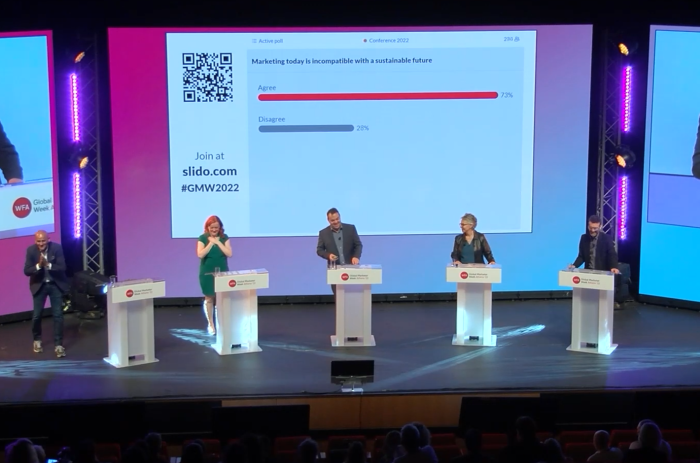Get analysis, insight & opinions from the world's top marketers.
Sign up to our newsletter.
Our industry can still be the place where the best people do their best work, says Will Gilroy, WFA Director of Policy and Communications.
Taking a job in advertising wasn’t a hard decision 20 years back. The general consensus was that it was a cool, creative industry to work in.
For me, there was also some family history. My sister worked at JWT and my brother ran his own agency. My grandfather had conjured the Guinness toucan as a creative in the 1930s. His jovial creations adorned my bedroom walls as a kid, just as they do Irish pubs the world over today.
Besides, growing up in the 80s in the UK, the ads were often more fun and entertaining than the programmes.
So I was shocked when I joined the WFA to learn we weren’t the good guys after all. Quite the opposite, in fact.
I was hit by allegations that food marketing made people fat, alcohol ads drove them to drink and all marketing turned kids into mini-materialists.
More recently, brands have been accused of ‘stealing people's data’ and funding online harm and misinformation, putting our safety and democracies at risk.
Over the last 20 years, I haven’t been the only member of our profession to realise that we can do harm as well as good.
A full 73% of marketers at our Global Marketer Week in Athens this year agreed that marketing today is at odds with a sustainable future.
In many areas we are seen as part of the problem. But I believe that we can also be part of the solution as well if we go back to what attracted me to our profession in the first place.

Global Marketer Week 2022 in Athens.
Recent WFA research shows the extent to which client-side marketers fail to prioritise creativity, despite recognising its power to deliver more effective marketing.
The study all points to risk averse cultures, short-term-focus and too many decision-makers. I’m also pretty sure this well documented decline in creativity has its roots in a few other unhealthy marketing obsessions.
The first of these has been prioritising the medium over the message. Sir John Hegarty and Orlando Wood both make compelling cases for why leaps forward in technology often coincide with a dearth in creativity. With the rise of digital, marketers have been overly focused on short-term performance marketing over longer term brand building.
The second has been an excessive fixation on brand purpose to the extent that too many marketers think all brands need to stand for something and have a view on everything. Once marketers shake themselves free from piano tinkling Covid ads and brand tributes to the Queen, Wood and Hegarty predict a creative renaissance as digital becomes second nature.
And there have been some green shoots. This year’s Cannes winners were all noticeable for producing great inclusive work that aimed to address societal problems in genuine and meaningful ways. Dole deservedly won a Grand Prix for showing how a business can be made from pineapple leaves that would otherwise be discarded.
And a special mention to Arnold Schwarzenegger and Salma Hayek who have amusingly thrown their celebrity weight behind BMW’s new electric range.
Can marketing and sustainability be reconciled? “It depends how you define marketing”, David Droga told us in a recent edition of the WFA Better Marketing podcast.
Think of Patagonia’s Yves Chouinard. While the donation of a multi-billion enterprise is beyond nearly all of us, we should take his gesture as inspiration to reimagine the boundaries of what we do, a challenge to our powers of creativity and imagination to solve for our biggest challenges. “Climate change is now a communications challenge”, says Sir David Attenborough. If that’s not a brief that excites us all to do our best work, I don’t know what is.
And for all the talk of a talent crisis, the smartest and most creative people I remember from school and university all ended up in our industry. And I’m reminded of that all the time I talk to our members. No other profession has the power to change so much through impactful storytelling. I’m convinced marketing will always attract brilliant people.
The world looks very different to 20 years ago. Climate crisis, war and economic uncertainty are driving doubts and anxieties particularly among the young.
Our industry should provide a place where young talent can use their creativity and ingenuity to make a difference. If we can truly provide a place where the best people can do their best work, I’m confident that marketing can get its mojo back.